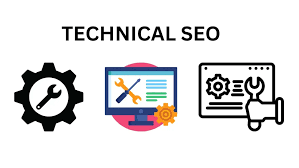
Emirati nationals pursuing careers need to understand the changing labour environment in the United Arab Emirates. This article explores some of the major avenues, government schemes, and new areas to help citizens explore opportunities in the local workforce.
Government policies and Emiratisation
The UAE government has enacted policies that encourage the hiring of its citizens both in the public and the private sectors. The Emiratisation program also requires companies to set aside vacancies to local talent, and quotas and incentives to increase the workforce diversity and national integration. Industrial collaborations with educational institutions provide apprenticeships, internships, and graduate programs that align university education to the market effectively. Regulatory authorities observe compliance and maintain transparent recruitment and career development structures. Through mentorship, professional development, and speciality certification workshops, the Emirati graduates develop leadership abilities and sector knowledge. With changing labour market requirements, agencies revise policies to fill gaps in technology, renewable energy, finance, and healthcare. Emerging sectors are also targeted in order to diversify national participation. Its goal is to develop a sustainable ecosystem in which nationals have access to competitive positions with expatriates. The combination of regulatory assistance and cooperation within the private sector supports the national workforce and creates a feeling of ownership over economic growth via UAE Emiratisation jobs.
Private sector incentives and support
The recognition of Emirati talent has gained traction by the private sectors, which have initiated incentive plans and support services to enable local hiring. Online portals and digital platforms facilitate application processes. Companies are encouraged to spend money on local employees through financial subsidies, tax breaks, and performance bonuses. Other services provided by dedicated employment offices include recruitment services, career counseling, workshops, and career development seminars to get candidates ready to take corporate jobs. One of the notable collaborative networks between commerce chambers and regional development agencies is the hosting of career fairs, which links citizens with industry leaders. To widen skillsets and ease the transition, companies carry out structured onboarding procedures, such as rotational placements in different departments. The support includes language enhancement classes and upskilling in vocational training to adjust to industry demands. Monitoring systems track changes in progress, and adjustments to incentives can be made. As the involvement in the private sector increases, Emirati professionals gain entry into mentorship groups, dedicated leadership institutions, and online entrepreneurial accelerators. Such resources create innovation and instill confidence in nationals to work towards well-advanced roles, which leads to sustainable contributions to the UAE economy.
Education and skill development pathways
Emirati career advancement has its roots in education and skill development programs. In the UAE, universities teach degrees in engineering, business, information technology, and healthcare, with many universities awarding scholarships and subsidized tuition to nationals. Vocational centers and technical institutes emphasize industry-specific qualifications, apprenticeships, and practical workshops to provide citizens with practical knowledge. Digital training academies offer training on coding, data analysis, cybersecurity, and artificial intelligence to fulfill the increasing demands of technology. Collaborations with education providers and the marketplace through the involvement of private companies will allow curriculum to be more market-oriented, and easier to transition into professional life. Online, continuous learning platforms help facilitate lifelong skills development with micro-credentials, professional diplomas, and executive programs. Leadership training courses are also provided in government-funded initiatives to get Emiratis ready to take supervisory and decision-making roles. These pathways enable the nationals to adapt to the changing industry requirements by focusing on lifelong learning and flexibility. Improved educational opportunities can be seen as a strategic resource to preparing Emirati professionals to be successful and lead in the long-term.
Emerging industries and sectoral opportunities
New industries in the UAE present exciting career opportunities to the nationals who want to diversify their careers. The renewable energy industry offers solar development positions, project management, and green innovation nationally. Software engineers, data analysts, cybersecurity professionals, and smart city planners are in demand due to technology programs and digital economy initiatives. High-tech industries and aerospace prospects grow in designated industrial parks and research centers. The healthcare sector needs clinicians, administrators, and biomedical engineers. The sectors of tourism, cultural heritage, and hospitality assign prime importance to nationals in guest relations, cultural programming, and destination management. The e-commerce boom opens the door to operations coordinators, supply chain analysts, and port authorities through logistics optimization. The area of financial services and fintech innovations attracts applicants to the fields of digital banking, risk management, compliance, blockchain integration, and insurtech. Creative industries, such as media creation and digital arts, also require local talents. On matching careers and sector growth, the Emirati professionals are placed in innovative fields and eventually contribute to the national economic diversification goals.
Entrepreneurship and SMEs
Entrepreneurship has become an accessible avenue through which the Emirati nationals can chart their careers. The government agencies offer grants, soft loans, and seed funding initiatives to companies started by citizens. The business incubators and accelerators provide affordable workspaces, guidance, and networking to enable the entrepreneur to understand the regulatory systems and perfect their businesses. Business planning, financial management, and marketing strategies training instill the necessary skills in nationals to start and maintain small and medium-sized enterprises. Sector specific programs focus on sectors like technology, tourism and agriculture to promote diversification. The company registration, licensing, and compliance are simplified by legal and administrative help. National development funds join venture capitalists to co-invest in high potential ventures and mitigate risk to individual entrepreneurs. Innovation showcasing and pitching forums increase visibility and help to secure strategic partners. Through the utilization of these resources, Emirati entrepreneurs will be able to stimulate economic growth, provide employment opportunities to other citizens, and help to build a strong and diversified national economy.
Work-life balance and cultural alignment
The cultural fit and work-life balance are important factors in Emirati career opportunity satisfaction and retention. Flexible working has increasingly been adopted by employers to support family needs and cultural practices with remote working, compressed hours, and job sharing being some of the most common types of flexible working done. National holidays, religious events, and traditional customs are included in the organizational calendars and support the feeling of belongingness and organization. To improve the level of mutual respect between nationals and expatriate colleagues, companies conduct cultural awareness workshops and cultural training modules. Professionals use support networks e.g. employee resource groups and community engagement initiatives to support social interactions and engage in charity projects. Wellness programs include physical and mental health by providing fitness centers, counseling services, and support sessions. Mentorship circles promote such values as collaboration, respect and service, connecting corporate goals to national ideals. By fostering an atmosphere that encourages cultural values and professional objectives to merge, organizations can contribute to job satisfaction and loyalty with the benefit that Emirati professionals can succeed in their personal lives and in their professions in the UAE job market.
Conclusion
The process of tapping into the UAE job market involves dealing with government policies, corporate rewards, education, growth sectors, entrepreneurship and cultural fit. Emirati nationals will be able to develop sustainable careers by utilizing the custom support frameworks, skill development initiatives, and industry opportunities to their advantage. Such a method will guarantee that citizens play a significant role in the national economic prospects and attain progress and sustainable professional fulfillment within their own country.





